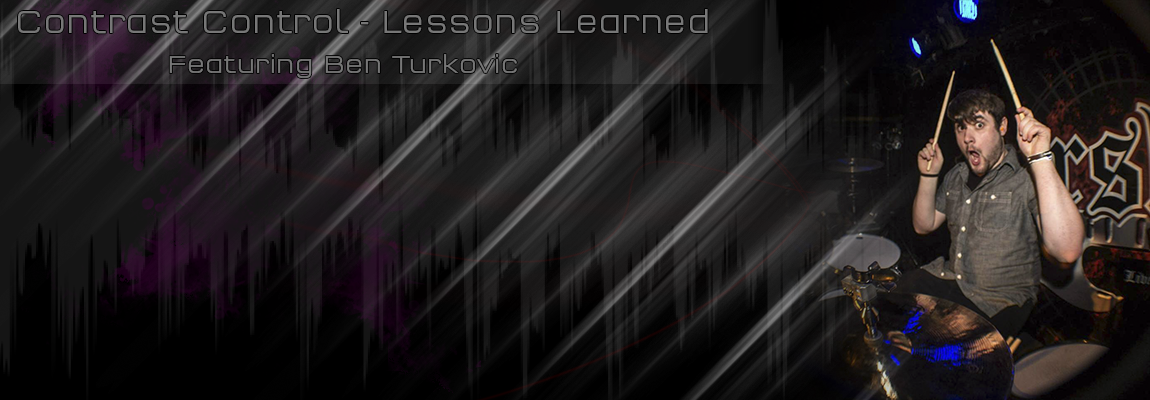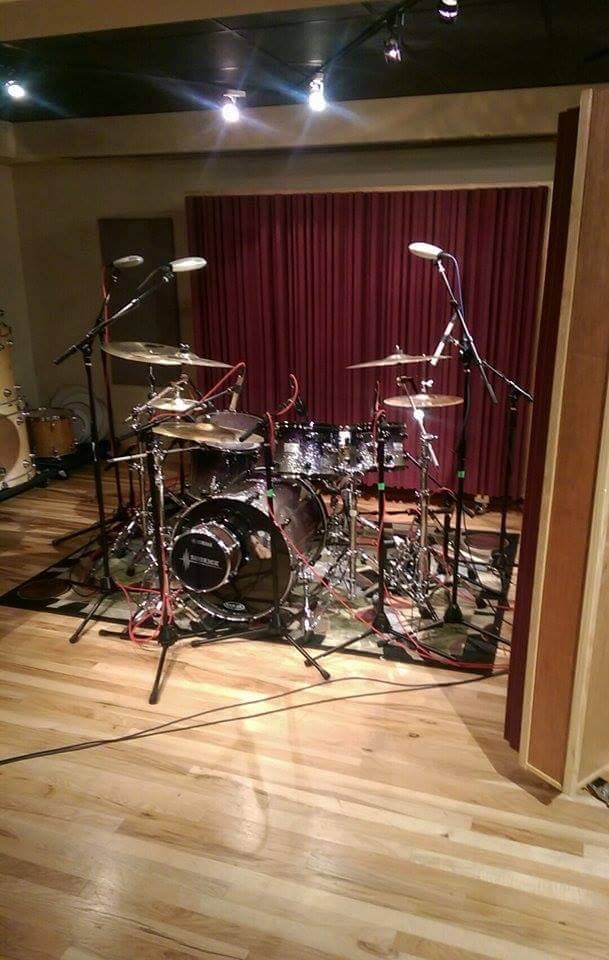
Lessons Learned has proved to be quite the project for me these past few months. From trying to find experience and dive into the musicians who have been through the ringer and back, things always turn out great.
This edition of Lessons Learned features Ben Turkovic. Drummer, producer, engineer, mix master, whatever you want to call him, he is jumping into it head first.
In the spirit of education and wisdom, Ben has told me and you, the readers, about what he has learned and how it helps him now. So check out this special in depth interview with Ben and be sure take notes for what applies to you!
James West: Ben, what is your background in music?
Ben: I was always very musical growing up and remember getting some small Sears brand drum kit when I was about 3. Soon after I got a little toy acoustic, but ultimately I didn’t start seriously furthering myself as a musician until I was about in 5th or 6th grade. Through Junior High I mostly just would play at home after school and eventually joined up with a group of guys in high school and started a band. We played a few shows and were generally awful, but we were young and having fun with it.
A couple years later I joined another more serious band and was able to learn what it was like to approach things a little more professionally. I ended up leaving that band to start a more hard rock influenced band around my senior year of high school with a couple classmates. I began having a little interest in the engineering side of things, and decided to take some classes for it at the local community college.
My band began gaining traction and ultimately got rather successful. During this time, I knew the bassist of one of my favorite local bands did engineering stuff, so I happened to ask him about any internships he knew of (not having any idea how successful and serious he was) and he said I could come intern for him, so around September of 2012 I started my internship with multiple Billboard charting Producer, Joshua Barber. I’ve stuck by his side for the past 3 years, assisting and doing what I could to further myself to where I am now.
In the time I’ve been with him I’ve been lucky enough to earn assistant credits on 4 different Billboard charting albums and have been able to help out with many musicians I’ve looked up to growing up. Early this year, after giving it some thought, I decided to start taking on my own projects as well as assisting on bigger ones, and began booking bands to produce and engineer on my own, turning what was once a hobby into somewhat of a full time job.
James: How did your experiences put you on the path to music production/engineering?
Ben: I think I eventually became realistic to the industry. When I was young (like many aspiring musicians) I had dreams of living the rockstar life, but with the changing fads and changing industry of the mid to late 00’s, I early on sort of accepted the fact that I probably wasn’t going to be the next Tre Cool from Green Day and I needed to figure out a more sustainable way to live my dreams.
My first thought was to become a music teacher, but being self taught I never had the confidence in teaching someone else when I hadn’t even been taught myself. Around this time my band was starting to make bedroom recordings and I had been messing with little recording programs on my computer for fun, but even at that point I didn’t think of it as a possible career, but more a hobby. It really wasn’t until I met Josh that I began thinking of it in that different way.
I think I began to see myself, possibly for the first time, as actually useful to others in a way that others can’t be. I have a huge aversion to any kind of work that doesn’t require you to be somewhat unique.
Anyone can do busy work and fold clothes all day, but I have to do something that only I can do, something where I bring my own unique flair to the table. That may sound pretty shallow, and it is, but I’ve been incredibly lucky and fortunate enough to be able to choose this path, and will not for one minute look down on those who aren’t able to just do what they want.
I’ve definitely been an exception and I’m very thankful for that. Being self taught and primarily playing a rhythmic instrument, I wasn’t able to pick up on compisition as much as I wish I did. That is the main thing that led me to the production side of things. I know what I’m good at and what I’m not, and what I’m not good at is sitting down and creating something.
However, what I AM good at is taking a rough draft and creating from it something new and improved. I also have a very over analitical side to me that fit perfectly with the engineering side of things. I’ve always obsessed over small details and to be able to deconstruct and dissect something to help improve it is something I love doing.
James: What are some vital tools in the engineer/producers toolkit?
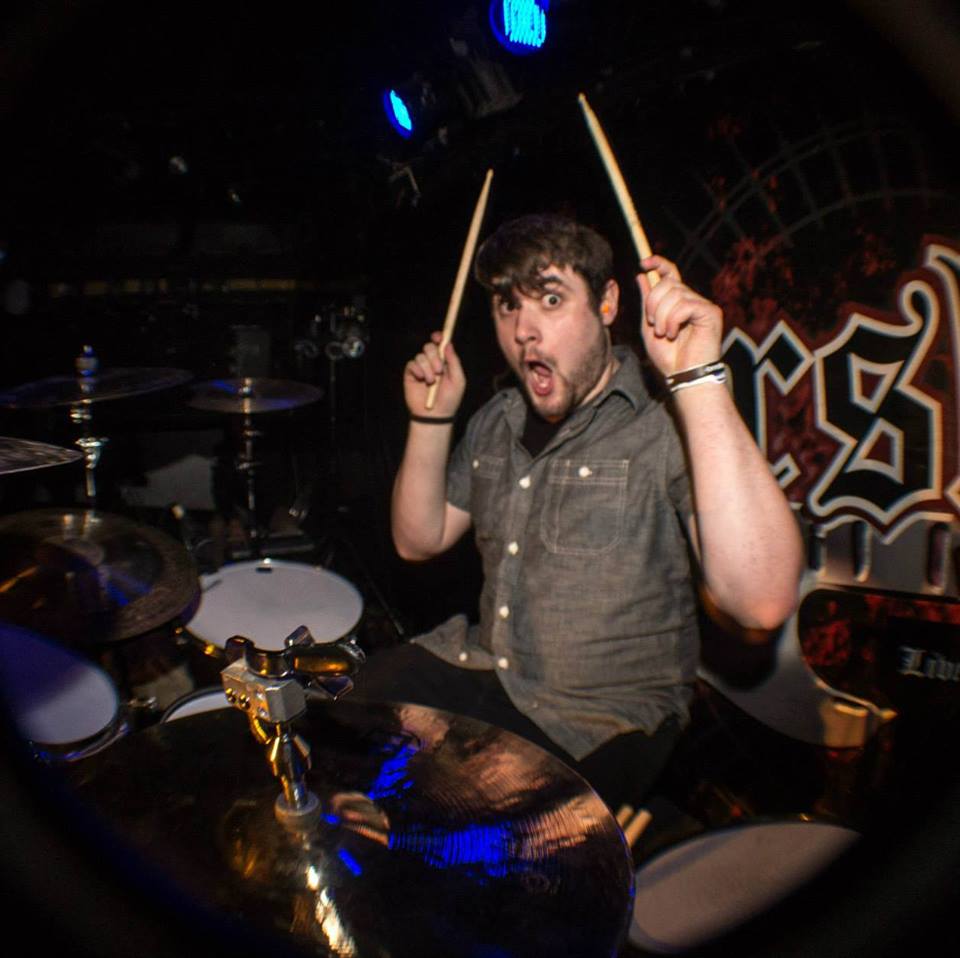
Ben: Every single tool available to you. For awhile there has been a huge debate on over using tools. The idea that using any sort of pitch correction or time correction or supplementing is somehow wrong, is very popular now. There are of course purists when it comes to any art form but, in my opinion, times change, and those not willing to change will be the only ones who fall.
I hear all too often that a band wants to go for a Beatles sound and be completely organic, yet they are often the ones that complain about how music is dying because of ‘no talent artists’ being popular. That notion is simply not true. If you look at it objectively, the Beatles were no more than the Justin Bieber of the time. They recorded at the finest studios with the finest production teams and enjoyed nearly endless budgets.
The reason their albums sound the way they do is because the technology of the time just wasn’t that great. If they had what we have available to us now, do you think they would’ve just stuck to 2-track recording? Personally, I doubt it.
Engineers are in the business of making something sound as good as it possibly can, and to deny yourself that ability on the basis of moral objection is just silly. Use every tool you have available to create whatever it is you’re trying to create! There are no rules here! There is something to be said for a nice organic recording, and there is something to be said for extremely over processed recordings. Everyone has their own taste.
I personally try to get as organic as I can and then spend time improving that later. I admittedly haven’t been in the game long enough to be able to get the most amazing sounds right off the bat and through use of only organic means, so I work to get the best result possible (which is always improving with experience), and if need be, touch up where needed. In the 5 months I’ve been actively working on my own sessions, I have probably changed the process in which I track about 3 or 4 times. You must always be evolving to find what works best for you, your workspace, and your clients.
My biggest advice to anyone would be to learn how to edit properly. Sometimes as engineers we are put in a situation where we just aren’t going to win. Maybe the drummer can’t play in time very well or doesn’t have good tonality to his playing.
Maybe the same is true for guitars and bass. Maybe the singer can’t reach the notes he is trying to get. All of these things are very real and very common, but, as I said before, it’s your job to make it sound good (or as good as it can be).
When I listen to a recording and something is obviously out of time or out of pitch, I don’t look at that as a reflection of the band being bad or untalented, I see that as a reflection of an engineer who either A, didn’t care, or B, didn’t know how to fix it. Instinctively we know that we have the ability to correct almost anything, and there is really no excuse for letting a client sound bad because you didn’t solve a problem.
Sometimes we have to get creative with our solutions, and sometimes you have to make due with what you have, but mistakes should never be overlooked as an engineer.
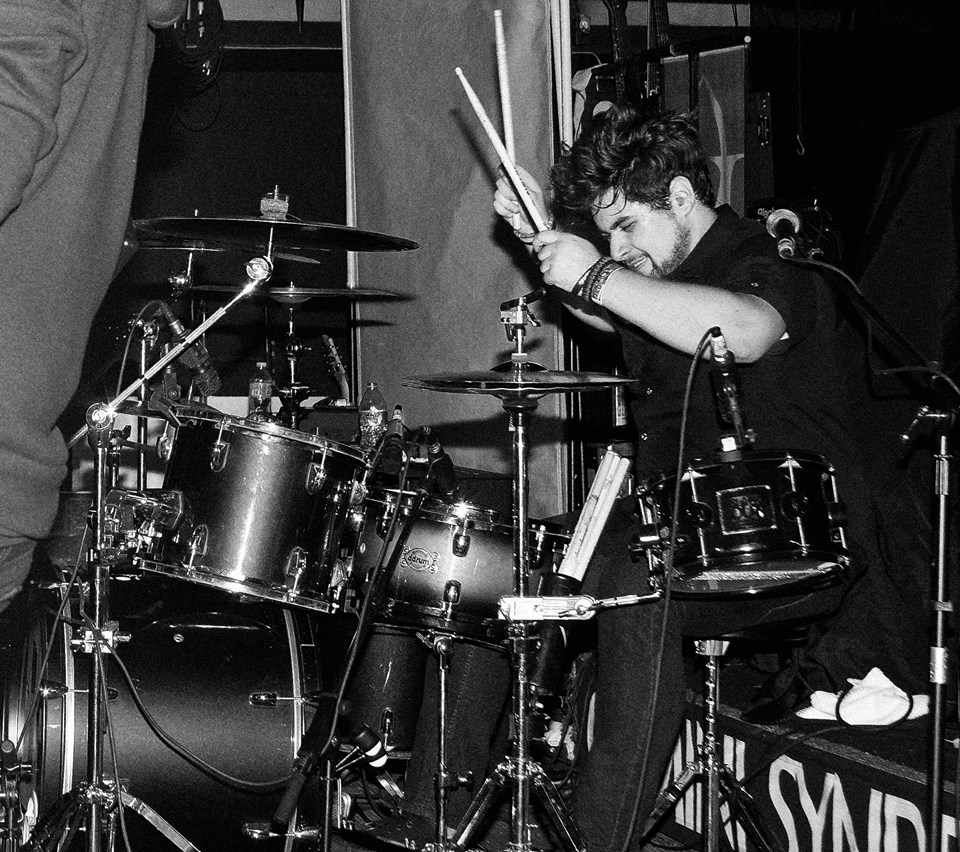
James: What are some mistakes you’ve made while working?
Ben: I’ve made many mistakes, and I’ve enjoyed every single one. This is definately a field where you are forced to think on your feet. A client comes to you trusting that you can give them a good product. To ensure that, you need to know your gear, know how to use your gear, and be able to troubleshoot and solve problems quickly.
I always embrace these moments as I know that I will never make the same mistake twice. To this day I instinctively double check certain settings that caused me to inadvertently delete a whole song.
Luckily it was when I first started out and I was in the bedroom stages of recording my band’s music, but I was just as humiliated telling my best friend that I lost the take as I would be now telling a client. Every time I’ve made a big mistake I’ve ended up calling Josh in a panic and 9 times out of 10 his response is the same, “Yeah man, I don’t know what to tell you.”
I’ve been there before and it sucks, but at least you know now that you won’t let that happen again.” Keeping that midset throughout the learning process is what has ultimately kept me going.
As far as specific mistakes, I can narrow them down to 2 major categories.
Software:
I use Pro Tools exclusively and those who use it know it can be a very finnicky program. For every way that it makes your life easier, it has about 5 ways that it will try and ruin it. The best way to overcome this is to KNOW YOUR PROGRAM. Know everything about it, the ins, the outs, and the inbetween.
The worst feeling is being in the middle of a session and having an error pop up that you have no idea what it means. Having a good base of knowledge helps you to forsee any potential issues and resolve them before they end up completely screwing up a session.
Hardware:
At the studio I work out of, we have lots of outboard gear and that what I primarily use when tracking. The positive side to this is that you can get a more rich true sound by using, say an actual 1176 compressor instead of a plug-in emulation.
The downside is that once you record it, it is there for good. EQ’s are much more forgiving to this issue, but when using an outboard compressor, you risk manipulating the signal to a point that can’t be undone. When using outboard gear, be sure to slowly test the water and not just dive in, even if you’re experienced using the emulation versions.
Analog gear reacts very differenly than digital. A personal example of this was a time I was recording an acoustic song and didn’t do a proper soundcheck before setting my compressor.
About halfway through the song I realized it was getting a really weird “radio” like feel from the dynamic range (FM radio signals are extremely compressed signals and typically lack any dynamics). I look at the waveform and then over at my compressor and realize that he was playing much harder than he was previously, thus causing the signal to hit the compressor extremely hard. Unfortunately in that situation all I could do was let the song finish and keep the settings I had at the time.
Ultimately the song came out sounding fine and the client was pleased with the outcome, but it always stuck with me as one of those moments where I learned a valuable lesson without there being an unhappy ending. Though I’m glad it happened as it more than likely has prevented anything happening that might not have a happy ending.
James: How have those mistakes taught you to improve in your craft?
Ben: In this field, the things that are on the line at all times are reputation and pride. One mistake that you made in a session years ago can mean the difference between securing your next session or losing it. The stressful part of that means that you have to be on your A game mostly all the time.
I’ve found the best way to help with this is to just be honest. Humble yourself enough to be able to admit when another producer or engineer does a good job. There have been times when I was in the running to get an album that ultimately went to someone else.
In those situations once you hear their product, your first reaction is to want to say you could’ve done better, but only say that if you’re able to back that up. I remember specifically when that exact thing happened to me and afterwards one of the band members asked me what I thought of the album, and it felt good to be able to truthfully answer “You know guys. It sounds great.
As much as I would want to say that I could’ve done so much better, listening to it, I couldn’t tell you how I would improve it.”. That moment did more to shape me as an engineer than anything else. It gave me a goal to reach and it reminded me where I was in my abilities, and I embrace that.
The worst thing you can do is say you can do something when you can’t. Clients will be much more forgiving if you are up front and honest with your product. I’ve found that people can be very forgiving of mistakes as long as you don’t claim to be perfect.
James: As this is meant to be a Lessons Learned for readers, what are some things others can take from your experiences in music?
Ben: Never write anyone off. Learn to use people, and not in a negative way. Give favors and take favors. Don’t let your pride stand in the way of a great opportunity. If someone offers to help you out, take it, because you never know what that could lead to.
Don’t assume that because someone is ‘below’ your skill level or ‘not professional enough’ that you can’t learn something from them. Talk to everyone you can and make as many connections as you can.
James: Do you have any advice for newer musicians who may be interested in recording their own music?
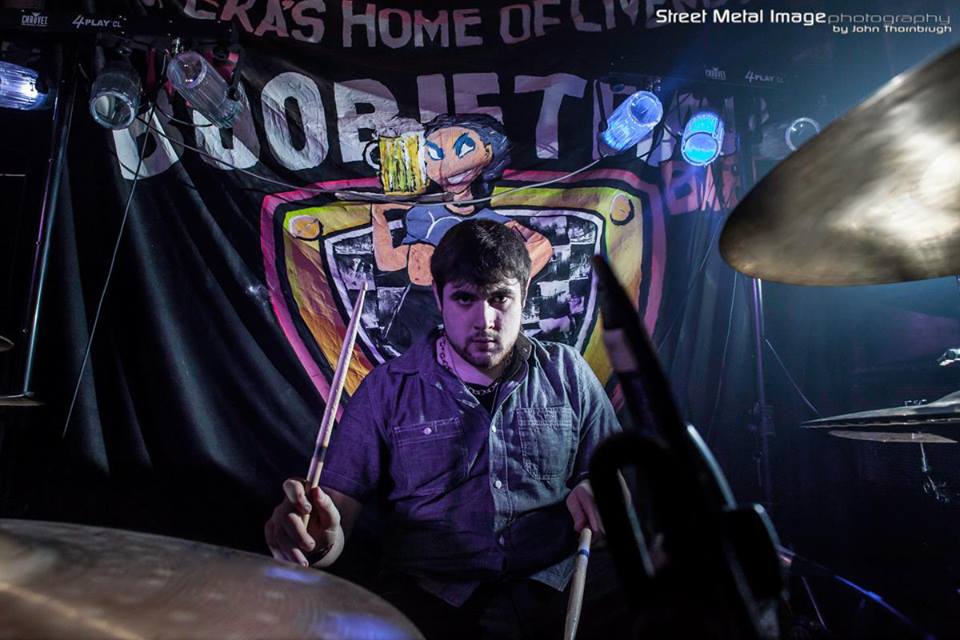
Ben: Consult a professional. We’re here for a reason and unless you are truly serious about learning audio engineering in a professional sense, insisting on doing it yourself puts me out of a job and gives you a subpar product.
Think of it as an auto mechanic. Sure, I can do basic things, I can change a tire, but I can’t do what my mechanic can do. Some people can do almost anything that their mechanic can do, however they lack the tools and experience that mechanic has.
We all generally enjoy what we do and aren’t out to rip you off, we’re out to make good music.
James: Thanks for answering my questions Ben, do you have any parting words for the readers of Contrast Control?
Ben: Keep working towards what you want to do! Very rarely are we held back by anyone other than ourselves. If anyone has any questions, comments, or would be interested in working on a project in the future, feel free to contact me any time at my producer page (https://www.facebook.com/benbobturkovic) or my personal page (https://www.facebook.com/ben.turkovic).
Pencils down! That does it for this article and brings a great new chapter into Contrast Control as we further the encouragement for good music and education into music. I’d like to thank Ben and welcome him into the Contrast Control Family!
For more information on Ben Turkovic, please visit the following links:
Written by James West 5-18-2015




